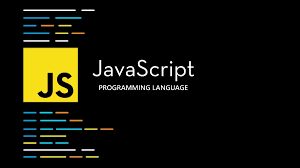
Tilak Khatri
Do you know ? Javascript Fundamentals
Before diving deep into the world of Node.js, having a strong foundation in JavaScript fundamentals is vital. This not only helps in grasping Node.js faster but also makes you more proficient in writing efficient and maintainable code. In this article, we’ll discuss the core JavaScript concepts that every aspiring Node.js developer should be well-versed with.
1. Introduction
Node.js is a runtime environment that allows you to execute JavaScript on the server side. With its event-driven, non-blocking I/O model, Node.js is perfect for scalable and real-time applications. However, at its core, Node.js leverages JavaScript. Thus, to truly harness the power of Node.js, one must first understand the intricacies of JavaScript.
2. Core JavaScript Concepts
2.1. Variables & Data Types
JavaScript offers both primitive and reference data types. Primitive types include Number, String, Boolean, Undefined, Null, Symbol, and BigInt. They are immutable and are stored directly in the location the variable accesses. Reference types, on the other hand, include objects (e.g., arrays and functions). These are stored in memory, and the variable stores the location reference. Understanding the distinction is crucial when working with data manipulation in Node.js.
2.2. Functions
Functions are first-class citizens in JavaScript. They can be passed as arguments, returned from other functions, and assigned to variables. Callbacks are functions passed into another function. Closures are functions that capture variables from their parent scope. IIFE (Immediately Invoked Function Expression) is a function that runs immediately after its creation. Grasping these concepts is fundamental for many Node.js operations, like routing or middleware functions. MDN Functions Guide is an excellent resource for diving deeper.
2.3. Control Flow
Control flow mechanisms like if-else conditionals, switch statements, and loops (for, while, and do-while) govern the logic of your code. They determine the order in which code blocks are executed, crucial for tasks like data processing in Node.js.
2.4. Objects
Objects encapsulate data in key-value pairs. Understanding prototypes is fundamental as JavaScript is prototype-based, not class-based. The this keyword in JavaScript refers to the object it belongs to. ES6 introduced features like the spread operator, destructuring, and classes which offer syntactical sugar over traditional prototypes. Dive into MDN Object-oriented JS for an in-depth study.
2.5. Arrays
Arrays are ordered lists of values. Advanced methods like map(), filter(), and reduce() enable powerful data manipulation, especially when working with large datasets in Node.js applications.
2.6. Scope & Hoisting
JavaScript has function scope and block scope. Understanding how variables (var, let, const) behave in different scopes and how hoisting elevates variable and function declarations is essential for avoiding bugs.
2.7. Error Handling
The try-catch mechanism allows developers to handle exceptions gracefully. This is critical in Node.js where a single unhandled exception can crash your server.
2.8. Events & Event Loop
JavaScript is inherently event-driven. The event loop, call stack, callback queue, and Web APIs are core concepts governing the asynchronous behavior of JavaScript. This is the backbone of Node.js’s non-blocking model. Loupe is a great tool to visualize the event loop in action.
2.9. Promises & Asynchronous Programming
Node.js heavily relies on asynchronous operations. Callbacks, while powerful, can lead to the infamous “callback hell.” Promises offer a more elegant way to handle asynchronous operations, and async/await further simplifies the syntax. Understanding this is key for database operations, file I/O, and API requests in Node.js.
2.10. ES6+ Features
Modern JavaScript (ES6 and beyond) has introduced features like arrow functions, template literals, and spread/rest operators. Familiarity with these features enhances code clarity and efficiency.